The transcript of the video is as follows:
Contents
- 1 Strategies for Building Links
- 2 How to Earn Links
- 3 Claiming Links to Your Website
- 4 Quick Summary of Building, Earning, and Claiming Links
- 5 Link Building is an Ongoing Process
- 6 Link Building Tips for Podcast Hosts
- 7 Prioritizing Links, and a Word on Buying Links
- 8 Editing Wikipedia to Build Links
- 9 Link Building Tips for an Online Coaching Blog
- 10 Link Ratios and Link Diversification
- 11 Do Blog Commenting & Social Bookmarking Work to Build Links?
- 12 Dofollow vs Nofollow Links
- 13 Becoming a Guest Contributor to Build Links
- 14 Wrapping Up The Webinar
Deepak Shukla:
Guys, hello. Welcome, Jaydip, welcome to SEMrush. This is Mr. Jaydip Parikh. We’ve got the next 60 minutes with him, so if you’re just joining us, please do, let us know what country and city that you’re in, and what you do for a living.
If you are an SEO agency owner, if you’re a freelancer, if you’re a link builder, if you’re a digital marketing manager, if you work at the local restaurant and you just thought you’d come and see Jaydip because you know him, then fantastic.
We’re going to be talking about advanced link building ideas and strategies. Jaydip’s got a presentation for us, he’s going to be talking to us about all of the things that you need to know, or at least many of the things that you need to know to execute a link building strategy. I am now going to pass the reins over to Jaydip. Jaydip, my friend, over to you.
Jaydip Parikh:
Hi, I’m Jaydip, I run an agency called Tej SolPro. We help various clients starting from Fortune 500 to startups, to rank their stuff. Primarily we work with SEO and paid marketing and in some integrated projects we work with social media as well, but our primary projects are SEO and paid marketing.
We work with lots of corporate companies and during the journey, we discover a few matters; how we can earn links, how we can generate links. This presentation, specially made for intermediate, and some novice people who just started their SEO journey. We believe in quantity but quality, of course, will win.
What we are going to discuss today is how we can make links that are of relevance. And (link-building) techniques. I categorize them as build, earn, and claim. Build: you build (links) by yourself. Earn: you do something good and you’ll earn links. Claim: there are some links that are already there and you can claim them.
Strategies for Building Links
How many of you have tried the reverse image search engine? Everybody knows this gentleman, right? Brian Dean. I just picked his Twitter image, profile picture, and put it on Google reverse image search and I found on the site, roughly 202 sites where he contributed.
In any case, his image is used on those sites. It took roughly half a second to get 200 possible links to find a similar kind of profile. I possibly try to post on the sites where Brian Dean is commenting. If I try to do a similar profile of who’s actively in our niche, I might have a good conversion ratio. We tried this method for a few of our clients and that works really well.
Business directories; I’m not talking about directory submission we used to do decades ago but this is some example. If you are a SaaS company, sites like Capterra, Trustpilot, G2, they are a good company to list your product with. If you’re a startup then check these startup directories, Crunchbase, AngelList, F6S. Or if you’re a tech agency, Clutch.co, GoodFirms, HubSpot.
Bonus Link: 7 Actionable Tips for SEO for SaaS
I want to insist if you’re a tech company or if you’re building web solutions, you can list yourself in HubSpot or Elementor. All these links add value to your portfolio. Plus, not only this, you will get a lot of referral traffic.
If you are able to have good reviews on Clutch or GoodFirms or Trustpilot kind of site, that will help to improve your conversion. This here I’m not only talking about links and here I’m talking about building a brand. A link is a byproduct for this but the core focus should be building a brand. Get more reviews and get more visibility.
Podcasts, how many are doing podcasts? Right, so here I have two solutions for podcasts. For Anchor, Anchor.fm, a site called Anchor.fm; it helps you to host podcasts. Not only host but broadcast your podcast. It will share your podcast with tons of other sites and of course a part of that profile you can generate links for yourself. Last, you can generate more digital footprints of yourself for your own brand or for agency brands or whatever company you are working with.
Bonus Link: Podcast SEO: Tips to make your podcasts SEO friendly
The second idea to get more links via podcast is guest podcasts. You try to appear, what are the active podcasts, you reach out to them, like video outreach, you send them emails and share your profile, “I’m doing XYZ and I have these credentials”.
For example, I want to pitch for myself, I can say I’ve done plenty of seminars with SEMrush. I spoke with various symposiums by UNICEF or this college or this university or this brand. I’m a brand ambassador for Hootsuite”. These are all of the credentials I have. If I send this kind of resume, of course, I’ll get a little more approval for a podcast.
How to Earn Links
Now let’s think about how we earn links. For earning links, quality links, either you need to spend time or else you need to spend money and that’s that. Exclusive content, if you are able to access some exclusive content.
If you’re a tech blogger you might have some leaked images of upcoming mobile products that are coming, laptop, or any tech devices. I suggest if you need to pay some money. We tried it for one of our tech blog teams. We broke some news. We spent certain money on it and we got roughly 425 referral domains within 15 days. Out of that, 87% had followed links.
This is some of the domains that got links: Forbes, CNBC, Gizmodo, The NextFab, Thesun.co.uk, NDTV, Metro.co.uk, Android Central, Android Authority, GSMArena, Business Insider from all ccTLDs, .in, .au, .co.uk, whatnot. All 425 are part of this thing and they spent, I guess, a few thousand dollars to get them. One more we try for Wikipedia.
Deepak Shukla:
Is there value in becoming a Wikipedia editor yourself and starting to build your own profile to submit contributions?
Jaydip Parikh:
Being a Wikipedia editor, I used to contribute a lot on Wikipedia not only for my client but for Ahmedabad, for example, Ahmedabad City Police page, I contributed a lot. Those are kinds of free things I’m doing. Pro Bono kind of stuff.
But Wikipedia’s not for building a link. Many SEO’s are making mistakes that they just think this stuff is only for link building. In previous things I said, Clutch or something, they’re for building more brands. Links should be a byproduct. Wikipedia, knowledge sharing should be your primary focus and links should be your byproduct.
We were working with one parenting blogger and we found there is some syndrome high in females and that caused, I forgot exactly what the consequences for that syndrome, but I was reading that article I say, “Let me read more about this syndrome on Wikipedia” because I used to read Wikipedia a lot and I am not able to find that page on Wikipedia.
So we created one. Out of the contribution, I mean whatever resources we took, citation we called in the Wikipedia library. One is from our blog and the rest are from natural link building. If something is not on Wikipedia you should create it. If they follow the policy of Wikipedia, of course.
This is how you earn links: statistics. That is one of the oldest and best formulas if you do it right. We did this…social media stats and they got 640 different domains till date, they’re ranking for more than 3500 keywords organically.
Deepak Shukla:
Nice. You would build your statistics page and then you would do outreach to these sites?
Jaydip Parikh:
A good question. We would try to make very in-depth statistics, we put it on-site and we try to make sure of these keywords. We are ranking on 3000 keywords, various long and short-tail keywords. We ranked for that and we earned the links organically. There is no outreach, there is nothing. All the publications used our data. They organically link back to us.
This is a very long process, a very time-consuming process, but as I say, either you invest money or invest time. There is no other way to earn more links.
From, I guess, 2017 more or less I started doing relationship building compared to link building. This is one of the shortest ways to get faster links and get authority links. Be in the right circle.
Deepak Shukla:
Absolutely, this is an excellent one as well. I think that relationship building, the value that you can get from someone through a good relationship is far superior than trying to just ask them to give you a link. And some of this stuff comes from ultimately building relationships. Jaydip and I are now obviously best friends, so I’m going to ask him to link me to absolutely everywhere and he’ll do it, so it’s going to be fantastic. Claiming links, let’s have a look at this.
Claiming Links to Your Website
Jaydip Parikh:
Again reverse engine search but this time it’s a little different. I’m assuming you have already designed a custom image for a blog post, right?
Many times your images start ranking in Google, I mean especially Google Images. Many people start reusing those images without giving you credit. You just reach out to them. You first do reverse image search and find which blogs or which sites are using your image. Just shoot them a message, “this is our proprietary image and if you want to use it, we are okay with that just give credit”. A 30%, 40% conversion ratio, I’ve seen in this kind of scenario. You can search your logos. You can search other images which are kind of proprietary.
SEMrush also brought a brand monitoring tool if you’re using a similar suite. We are doing for ourselves and you can see with backlink there are zero results. Total mentions are in a certain time period. If they are not linking back to you, you can find it and reach out to them.
If you’re not using SEMrush, you can use Google Alerts for the brand keyword, brand name. And there is one more site called mention.com. Give it a try. That’s it from my side.
Quick Summary of Building, Earning, and Claiming Links
Deepak Shukla:
Thank you for that, Jaydip. There was lots of value in that. Let’s see how good my memory is and for the benefit of the audience, let’s have a review. We spoke first of all the Brian Dean example with, of course, reverse image search which is a big one. Guys, you can use reverse image search, identify an influencer such as Brian Dean, Jaydip Parikh, or Anton, who’s behind the decks and see where you can acquire or reach out for links.
The second element is modern-day brand building platforms, let’s say. Clutch is a great one if you’re an agency. G2 is a great one if you’re a software service and then the third thing I think that he may have mentioned was, of course, social media statistics.
Building and looking, ultimately, statistics where you can add some value and then maybe looking at sites where you could combine probably social media statistics with some broken link building to see if there are sites that link to potentially outdated statistics.
And the reverse image search for your own images, I think is a very good idea that there is some, probably, value in looking at your own blogs, seeing ones that index and rank well. And if you’re using other people’s images, start using your own image and see what happens over time.
There’s actually a lot and that’s not everything. I know Jaydip remembers more than I do. Guys, I certainly enjoyed that and let’s now jump into the questions that have come in since the beginning, Jaydip.
Link Building is an Ongoing Process
Let me ask you this, “What do you think, first of all, is your favorite of all that you’ve mentioned which is your favorite that consistently produces results over time? Because some of those are, you know, probably take time and effort and energy to actually execute but is there one you’d say, “Guys, if you’re going to remember one thing from this webinar, this is the one thing. The one thing that I think you should think about executing.”
Jaydip Parikh:
Honestly, there is no one thing. The building is an ongoing process. And you need to start that process. There is no shortcut, but yes, if you want to do it consistently, guest posts or relationship building. We build brands, we build circles, we build relationships and that is an ongoing process.
Link Building Tips for Podcast Hosts
Deepak Shukla:
Could you talk a little bit about your perspective on link building from a podcast hosting or guest perspective? Do you come at it from a place of, “well Deepak, it’s about the relationship that you build with these podcasts more than it is direct traffic or referral traffic?” What are your thoughts on it when you combine podcasts with link building?
Jaydip Parikh:
If you start studying Google in recent days, post-2016, 17 onwards, Google tried to implement more AI and machine learning. We all know they focus more on rankbrain in the latest algorithm. What rankbrain says is how is your digital footprint and from which kind of zone.
If I’m able to get a link from National Geography, but that link might not add much value to my site because I’m talking about marketing, I’m talking about digital, I’m talking about SEO, and Nat Geo’s talk about animal life, animal welfare. Though that is a powerful link, it might not add too much value to my portfolio in terms of ranking, in terms of the link algorithm.
When you talk about podcasts and other things it creates a very relevant digital footprint in the eyes of Google. That adds relevancy factors to you and in many of my seminars I keep on saying links are a kind of currency
Deepak Shukla:
Yeah, I feel that’s fantastic guys. Quality over quantity, really, when it comes to building a long-lasting link building strategy is important and one of the good things I was really pleased to see in Jaydip’s presentation is that when he talked about directories, he made it very clear, we’re not talking about the auto submission or hundreds or maybe thousands of business directories that pop up that have probably zero organic traffic.
Whereas sites such as GoodFirms, Clutch: our agency Pearl Lemon, we list on both those sites. They do drive referral traffic, they are really active and organic websites and Jaydip says, from a brand perspective, which is especially important today. I think it’s very critical that you think about those places. I couldn’t agree more with Jaydip.
Prioritizing Links, and a Word on Buying Links
Shazeel asks…is there an order of priority or hierarchy that you think is important when you think about link building? Are there things you would do first before you come to other things?
Jaydip Parikh:
For link building, I try to divide into two things: Which links I value more and which links take less time. We do a SWOT analysis. I’ll try to choose a link which adds more value and takes less time. Prioritize that and so on and so forth. Some processes might take a lot of my time. One of the examples I shared; exclusive content.
On the contrary, if I need to list on Clutch or GoodFirms or similar kind of site, there is surety: I’m going to get links but on top of that…I’m able to get more value out of that, that also I need to calculate.
Deepak Shukla:
Ra Na was asking a question. He talks about buying links. Ra Na, when we talk about the spend attached to these projects, getting original research takes time. You often have to maybe have to hire a research executive to actually conduct research. I’m often emailed for people conducting surveys and then as a consequence of perhaps reaching out to you they might have an analysis of data or you might keep historical data that needs to be computed. There’s many types of things that you pay for.
Buying links is not something you should ever do nor is something that we endorse but the process with actual research to generate an original piece of content or original case study, there’s always costs associated, whether that’s time as well as the actual salary that you pay people.
It’s good that you’re honest and there are of course many business owners that do choose to take that path, but I guess the point that we make here is that there are many, many other strategies that you can explore like building relationships, like doing outreach, like hosting podcasts, like original research, like Wikipedia contributions, like reverse image search. You may well find that if you add these to your portfolio, you build a much healthier kind of link profile. What are your thoughts on Ra Na’s comments, Jaydip?
Jaydip Parikh:
Generally, Google says don’t buy links, so when google says don’t buy links, you should not buy the links. But you can purchase a site. Google didn’t say you shouldn’t purchase a site.
Fantastic, so there you go. There’s a fantastic workaround. You can look at sites that have good SEO and you can buy the whole site and then of course, acquire its links in that way. That’s actually a very smart workaround.
Editing Wikipedia to Build Links
Deepak Shukla:
Let’s keep going and guys keep asking your questions and let’s have a look at what else is coming in. Barbara Sawala, she asks, “Are your Wikipedia edits rejected from time to time?” Do you want to talk to us a little more about your Wikipedia journey?
Jaydip Parikh:
It happens and many times, Wikipedia editors; they have different views. Especially if you go to any controversial page like our Prime Minister, Narendra Modi or Donald Trump. You go to that kind of Wikipedia page, the editors lock the page so a normal person can’t edit it even. I’m contributing to Wikipedia for more than a decade now, so I have certain privileges to do it but if you are just a new user of Wikipedia you won’t create a new page.
Deepak Shukla:
Yeah, yeah, yeah, it absolutely makes sense guys and the challenge that you’ve got as marketers as well is if other editors look at you and see that you’re a marketer as a profession, then you’ll get scrutinized even further, okay. We often get approached saying, “Deepak, can you get us on Wikipedia?” And I’ll say, “It doesn’t really work like that, my friend.” Because you’ve got a lot of people on there that can sometimes unfairly punish you but often fairly punish you because there are people that will try and build a page specifically for search engine purposes is nothing new.
Link Building Tips for an Online Coaching Blog
Let’s keep going. Daniel D’Costa is asking about recommendations. What recommendations would you have for an online coaching blog to build links? Let’s just assume that he’s an online business coach. What recommendations would you have, higher level, for him to get recognized for?
Jaydip Parikh:
Daniel, you go to business sites where they talk about business. For instance, what you are coaching is more about sales, more about marketing, or process-oriented. Try to find that kind of site, add value to that site, in terms of discourse, even in terms of comments and try to get more links, or visibility from that site.
In marketing, we keep on saying go where the audience is. If your audience are students, go to student-related sites. If your audience are CEOs, go to sites where CEOs visit and try to add value to that site and that will do the job.
Deepak Shukla:
There’s a fundamental premise here guys, that… And unfortunately, I do agree with Jaydip that the shortcuts will lead you to, ultimately, short term results. Let’s just say for example, “Ah, I know what I’ll do, I’m going to list on as many as these directories as possible.” Jaydip or I or competitor will list on those directories as well as doing all of the other things and then Google will look at your link profile, which contains a hundred more directories but, it would not look diverse at all.
Diversity as well as relevancy is really important and often time as with anything, a lot of it comes from relationships. So, Daniel, if you can identify all of the relevant players in your space and seek to build relationships with individuals, it can really take you far, so I totally agree with Jaydip.
Link Ratios and Link Diversification
What’s your view, for example, on internal versus external link ratio when it comes to a post that you have on your own website? Is there a golden rule that you keep to if you’ve got a 5000-word piece on social media statistics that you want to then use as an anchor to reach out. How many links would you use in a piece of content like that on your blog?
Jaydip Parikh:
There is no golden ratio but I’ll vouch and share at least one or two or more links which is relevant, at least. Any authority sites, like Wikipedia or Forbes or CNBC, or anything where users get more value from what you are saying.
If I’m talking about SEO for example, I might link to Moz SEO guidelines, Moz SEO guide which is for a novice who wants to learn SEO. I like to link back to that guide to give you more value to my users and Google is all about value.
When you talk about SEO, Google says add value to users. That is going to be helpful eventually. The more value I add to my users the more Google will allow me or allow my content and they improve my ranking.
There is no short, single formula where you get ranking. There’s 200 plus things Google will consider, but a few of the things are good content, good links, your page speeds and other things.
Deepak Shukla:
To build upon that, if we’re thinking, for example, about the example of, we spoke about guest posts, right. Let’s just say you have a contribution account to SEMrush, you submit an article and it gets approved and you’ve gone live. Would, in your opinion, that be an effective strategy to solely focus upon because you know the process and it works? If you’re doing that well, just focus on that for 80% of your link building efforts and don’t worry so much about the rest? Or would you say, “No, it’s important you do some of everything”, even if some of those other things are perhaps more difficult for me to do?
Jaydip Parikh:
Few minutes back you just said, “Google loves diversification.” The Google broader guideline is, “Don’t manipulate our result.” Though actually we are doing that, but we are doing it smartly. We are not breaking any Google guidelines and that’s why I say link diversification.
Sometimes you need to, we keep on our clients, sometimes we need to generate very low-level links. And they say, “We are paying for this sh*t.” But we say, “Google loves diversification”, so the sh*t adds value to diversification. It might not add value to ranking or any other thing but Google will think, “Okay, they are not manipulating our result.”
Deepak Shukla:
Aziz asks are there any other…strong methods of link building such as guest posts or broken links. If you were picking guest posts versus broken links, do you think one or the other is more effective in your experience?
Jaydip Parikh:
Both are effective but how fast are you able to get them? Sometimes in some niches, finding broken links is too hard compared to guest posting. In some niches, the hardest thing is to get guest post approvals. In that case, we need to go to broken link building or any of the alternative methods.
Deepak Shukla:
Okay, okay, perfect. It’s niche dependent. If you’re in the marketing space, thankfully there is plenty of both because things go out of date all the time. You could do guest posts, there’s many places. You could also do broken link building. There’s sites that are changing all the time. Their links are breaking all the time.
Do Blog Commenting & Social Bookmarking Work to Build Links?
Harshal asks an interesting question. Harshal asks, “Does blog commenting still work?” Is it a thing? Is it a waste of time?
Jaydip Parikh:
No, I would not consider it a waste of time. I vouch for it for two main reasons. It will help you to improve your referring domains and digital footprints and in certain cases, it will be able to, if your comment is well-written or if your comment is controversial, it might give you referral traffic as well. Plus, Google considers it as one more diversification of your links.
Deepak Shukla:
Perfect, perfect. So there you go guys, blog commenting still works. It’s the same thing. Find relevant posts, have a look at blog posts of people who are actively commenting upon. Add your own comment to the article and your author bio can often contain, of course, a link back to your website which is where the value is and that’s what can drive a significant amount of referral traffic.
There’s people that hang around in forums and build agencies around it. It can, if you add value as well, it can do more than just provide link value it can provide real business value as well.
Okay, let’s go to BeingDhruv’s question. Guys I’m just reading and sorting through the questions. Does social bookmarking still help?
Jaydip Parikh:
It might help you if your blog is new and it might help you to get it grown but as I said, links are currency. Do you want to go for a penny or do you want to go for millions? That is your choice.
Deepak Shukla:
Yeah, yeah, absolutely. Guys, social bookmarking it’s a land where you can do lots of syndications and submissions and Google’s pretty smart at figuring out what you’re trying to do there. I’d say that, as Jaydip says in the limited instances you’ve got a new site and you want to get things indexed more quickly, then it can be a strategy but beyond that it’s probably better to look at some of the other elements.
Dofollow vs Nofollow Links
Shazeel asks the next question just below it, “What’s your opinion on the whole dofollow, nofollow thing?” Recently that’s in the process of Google determining attribution. What’s your thoughts on is it worth still getting nofollow links, is it all changed now or what’s your opinion?
Jaydip Parikh:
If you want me to answer in short, links are links. Irrespective of dofollow, nofollow. In case of nofollow, we are not getting link juice and that’s it but we got all other values. We got relevance, we got digital footprints, in some cases referral traffic.
Becoming a Guest Contributor to Build Links
Deepak Shukla:
Let’s keep going. Trushant is asking, I’ll answer this. Trushant asks how to become a contributor author at places such as SEMrush, Search Engine Watch, other places?
Trushant, it can begin by an active member of the community, you can submit an excellent post, first time, as an unknown and you can get accepted if you’ve got a fantastic case study, if you’ve got a fantastic insight into something within the world of SEO.
It is likely that the editor, depending on who it is, if they’ve never heard of you before, they might look you up, of course, to just have a look at “Oh, wow. Who wrote that fantastic article.” It pays to have a digital footprint.
Which is you being, even ranking for your own brand name is simple enough. That’s my feeling on it, that it does begin actually with producing excellent and original content and then combining that with a brand online can help you become an author or contributor to any of these sites. Is there anything that you’d add to that Jaydip?
Jaydip Parikh:
If you want to understand how you improve your personal website you should check Deepak’s site.
Deepak Shukla:
One of things with link building is remembering that it’s people like Jaydip and me that are on the other side of it. You know, it’s real people. It’s those people that determine link value. If you take the time to build a relationship with Jaydip, the introductions that he can make, the network that he has, which is why over the lifetime you can gain a lot more from building a relationship on the basis of a brand.
Wrapping Up The Webinar
Deepak Shukla:
Jaydip, if everyone was to forget everything that happened on this webinar and they were to remember one thing, one thing about link building, advanced link building, what would that one thing be?
Jaydip Parikh:
Add value.
Deepak Shukla:
Guys, add value. I felt like swearing in the middle of that. Good thing that I didn’t. If you’ve seen me on any other webinars that I might have been on. Add value. Jaydip, thank you so much for your time. Reach out to Jaydip personally if you’ve got any questions. Google Tej SolPro and you’ll find him, I’m sure and you should hire him for link building, naturally.
Deepak Shukla:
My name is Deepak Shukla, this is Jaydip, this is SEMrush. Thank you guys so much and catch you on the next webinar.

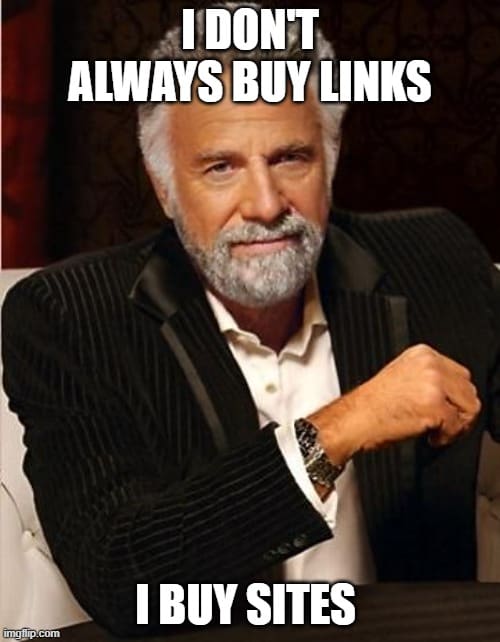
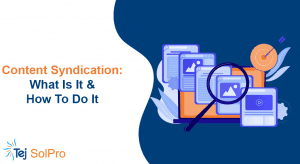
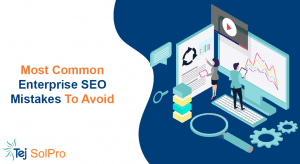
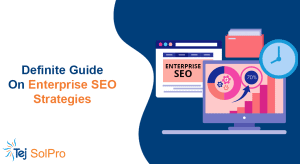

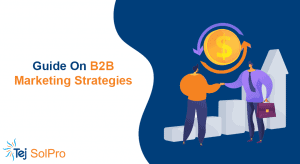
2 thoughts on “Advanced Link Building Ideas – Webinar With SEMRush”
Way cool! Some extremely valid points! I appreciate you penning this write-up plus the rest of the website is very good.
Really appreciate you sharing this article. Really thank you! Fantastic.